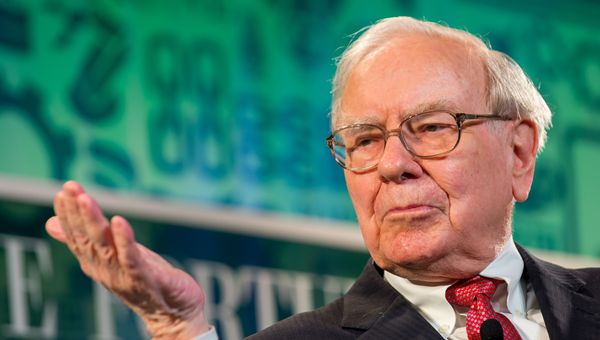
Investing Insights: How Was Warren Buffett Able to Do What He Has Done?
by Michael Lamonaca 9 July 2025
Warren Buffett. The name alone conjures images of immense wealth, shrewd investments, and an almost mythical status in the world of finance. For decades, he has defied market norms, consistently outperforming the vast majority of professional investors. As a self-taught investor who deeply respects his wisdom (even though my method takes a different path), the question “How did he do it?” has always fascinated me.
It’s not about secret formulas or insider tips. Buffett’s success stems from a handful of surprisingly simple, yet incredibly difficult-to-execute, principles that align remarkably well with my own “Hold for Life” philosophy.
1. He Focused on Businesses, Not Just Stocks
This is the cornerstone of true value investing. Buffett, influenced by his mentor Benjamin Graham, never saw shares as mere pieces of paper to be traded based on price fluctuations. He saw them as fractional ownership in real businesses. His deep dives into a company’s operations, its management, and its competitive landscape were relentless.
My Take: This resonates deeply with my conviction. As I explain in my “My Investing Philosophy,” my first rule is “Buy Businesses, Not Stocks.” If you understand the underlying business, its revenue, its costs, its management, and its ability to generate free cash flow, you’re investing, not speculating. It removes the emotional pull of daily price movements.
2. He Understood Value (and Demanded a Margin of Safety)
Buffett’s genius lay in calculating the intrinsic value of a business and then only buying when the market offered it at a significant discount. This “margin of safety” meant that even if his calculations were slightly off or if the market hit a rough patch, he still had a buffer against permanent capital loss. He famously said, “Price is what you pay. Value is what you get.”
My Take: This is precisely why my method is solely based on fundamental analysis and rigorous scrutiny of financial statements. I don’t care what the “market” thinks a stock is worth today; I care about what the business is truly worth. If the market isn’t offering that discount, my money stays parked, earning interest, until that opportunity arises.
3. He Practiced Extreme Patience (and Let Compounding Work)
Buffett is the ultimate long-term investor. He held companies for decades, allowing the power of compounding – reinvesting earnings, growing dividends, and time – to work its magic. He understood that wealth accumulation is a marathon, not a sprint. His most significant gains often came from holding quality businesses through multiple market cycles, resisting the urge to trade in and out.
My Take: This is the heart of my “Hold for Life” approach. I, too, am not here for the thrill; I am here for the money. Once I find a fundamentally sound company acquired at value, I see no reason to liquidate it if it continues to make me money. Patience is not just a virtue; it’s a strategic weapon that few investors truly wield.
4. He Embraced Contrarianism (and Mastered Emotion)
Buffett famously advised to “Be fearful when others are greedy, and greedy when others are fearful.” This isn’t just a catchy phrase; it’s a disciplined approach to market psychology. When the market is euphoric and prices are inflated, he stays calm and waits. When panic set in and quality assets were being sold off indiscriminately, he got excited and deployed capital.
My Take: This is perhaps the hardest lesson to internalize, and it’s a cornerstone of my discipline. As I’ve learned, when everyone is excited about the market, I stay cool. When everyone is panicking, I get excited and buy at a value. It’s about letting rational analysis override emotional reactions, which is a powerful differentiator.
5. He Understood the Power of Cash
Unlike many investors who feel compelled to be fully invested at all times, Buffett has often held significant amounts of cash when he couldn’t find compelling opportunities. This wasn’t laziness; it was strategic. It preserved capital and allowed him to pounce decisively when rare, undervalued opportunities finally appeared.
My Take: This is exactly why I only invest when the opportunity arises, and it doesn’t happen often. My cash earns interest until the right moment. I want my money to work for me, and sometimes that means waiting for the perfect moment to deploy it.
Your Path to “Hold for Life” Success
Warren Buffett’s legacy is a powerful reminder that complex strategies aren’t always necessary for extraordinary results. His success boils down to deep research, unwavering patience, emotional discipline, and an unshakeable focus on value.
While my style of investing, driven by my journey from publishing and my sole reliance on fundamental and financial statements, may differ in its specifics, the core principles of patience, value, and demanding that your money works for you are universal truths.
If you’re ready to learn a disciplined, long-term approach that prioritizes financial freedom over fleeting market thrills, explore more of my insights.
Ready to learn more about patient, value-driven investing?
- Explore More Investing Insights: [coming]
- Download My Free “3 Must-Check Ratios Before Investing in Any Global Dividend Stock”(coming)
Checklist: [coming]
Disclaimer: The information presented here is for general educational purposes only and not financial advice. It does not take into account your personal objectives, financial situation, or needs. You should consider whether the information is appropriate for your circumstances and seek independent financial, legal, or taxation advice before making any investment decisions. Past performance is not a reliable indicator of future performance.
Sources